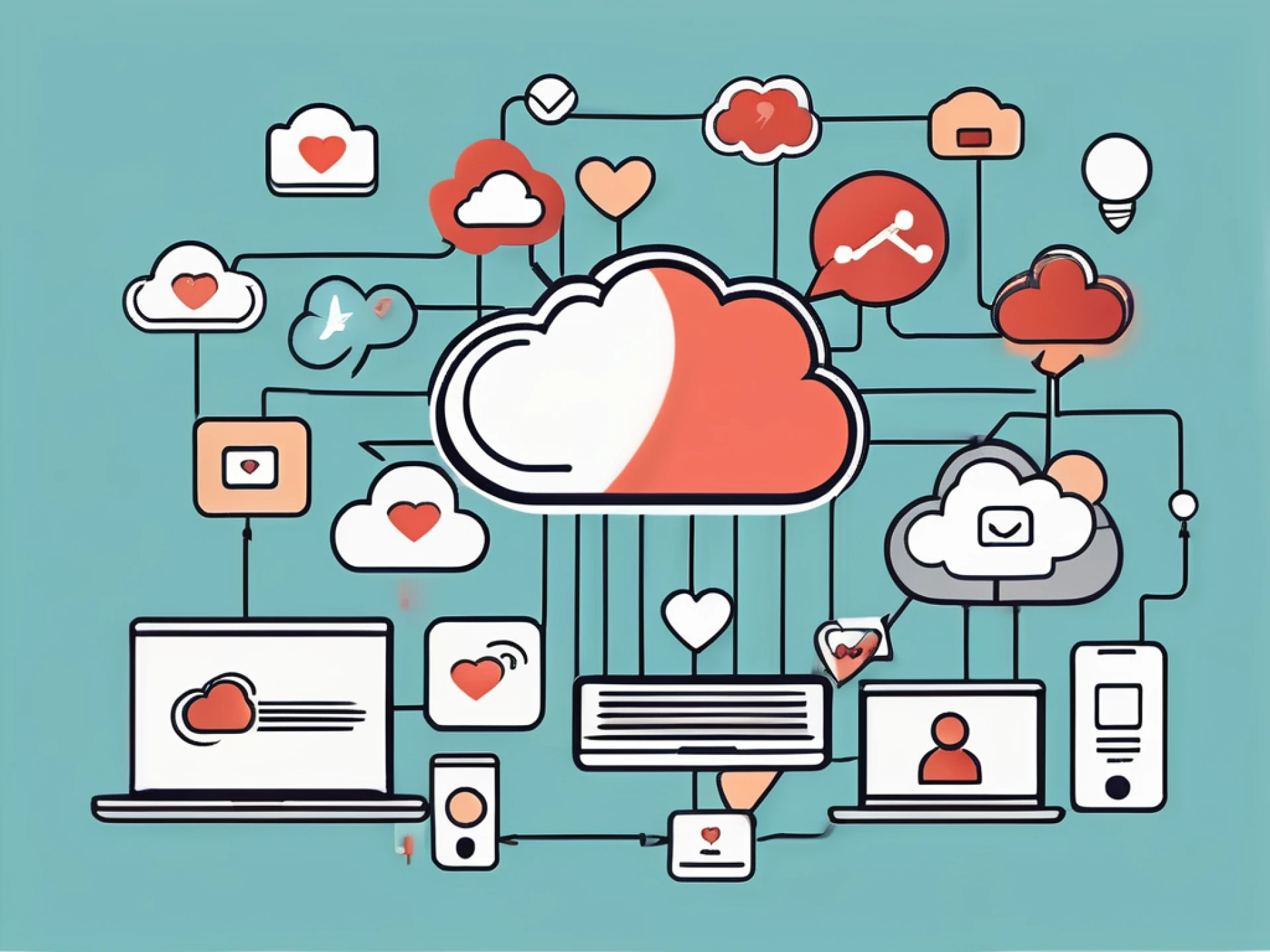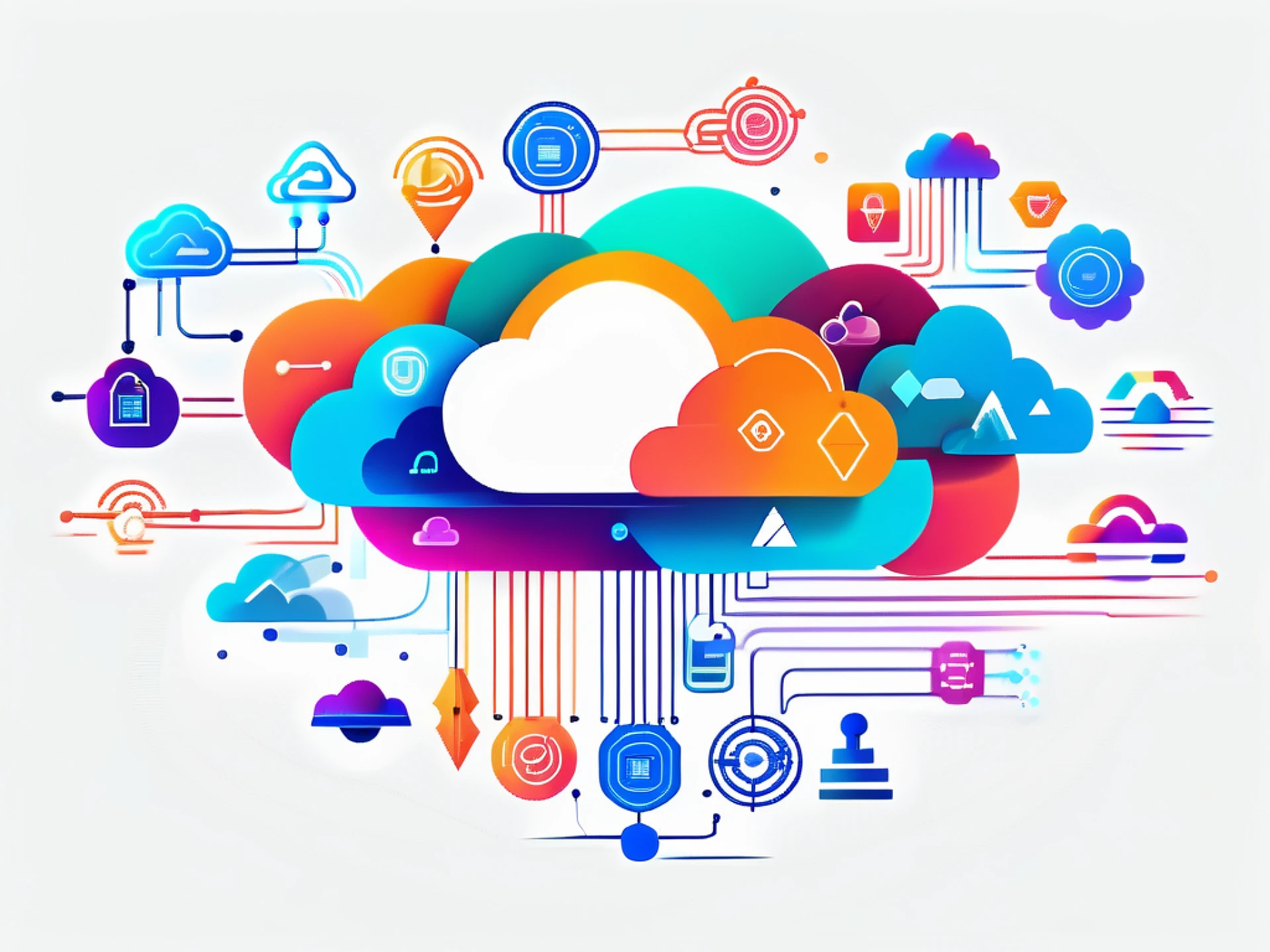
In today\'s digital era, businesses are constantly seeking innovative solutions to enhance their operations and improve customer satisfaction. One such solution that has revolutionized the way companies manage their customer relationships is cloud computing. By harnessing the power of the cloud, businesses can streamline their customer relationship management (CRM) processes, enabling them to deliver exceptional experiences to their target audience. In this article, we will explore the various ways in which cloud computing improves CRM efficiency and the key features that make cloud-based CRM systems a game-changer for businesses.
Understanding Cloud Computing
Before delving into the impact of cloud computing on CRM, it is essential to have a clear understanding of what cloud computing actually is. In simple terms, cloud computing refers to the delivery of computing services, including storage, databases, software, and analytics, over the internet. Unlike traditional software and hardware infrastructure, which are housed on-premises, cloud-based solutions operate on remote servers and can be accessed from any device with an internet connection.

Cloud computing has revolutionized the way businesses operate by providing scalability, flexibility, and cost-effectiveness. Organizations can leverage cloud services to streamline their operations, enhance collaboration among teams, and improve overall efficiency. The cloud also offers enhanced security measures, ensuring that data is protected and accessible only to authorized users.
Defining Cloud Computing
Cloud computing encompasses a broad range of services, including:
- Software as a Service (SaaS): Applications that are accessed via a web browser, eliminating the need for software installation.
- Platform as a Service (PaaS): Platforms that provide developers with the necessary tools and resources to build and deploy applications.
- Infrastructure as a Service (IaaS): Virtualized computing resources, such as servers and storage, that are available on-demand.
Each of these service models offers unique benefits to businesses, allowing them to tailor their cloud infrastructure to meet specific needs and requirements. SaaS applications, for example, provide a cost-effective solution for accessing software without the need for extensive IT support, while PaaS platforms empower developers to create custom applications with ease.
The Evolution of Cloud Computing
The concept of cloud computing has evolved over the years, with significant advancements in technology and infrastructure. Initially, cloud services were primarily used for storage and backup purposes. However, as businesses recognized the potential of cloud computing, the technology expanded to encompass a wide array of services, including CRM.
The Intersection of Cloud Computing and CRM
Cloud computing and CRM go hand in hand, as both aim to enhance customer experiences and streamline business processes. By integrating cloud computing with CRM systems, businesses can leverage powerful tools and capabilities that were previously unavailable with on-premises solutions.

The Role of Cloud Computing in CRM
Cloud computing plays a crucial role in CRM by providing businesses with a centralized repository for customer data. This eliminates the need for manual data entry and allows for real-time updates across all departments. Additionally, cloud-based CRM systems enable seamless collaboration and communication between team members, regardless of their location.
Benefits of Integrating Cloud Computing with CRM
The benefits of integrating cloud computing with CRM are manifold. Firstly, cloud-based CRM systems offer enhanced accessibility and mobility. Users can access important customer information from any location, as long as they have an internet connection. This empowers sales representatives and customer service agents to provide personalized and timely assistance to customers, thereby improving satisfaction levels.
Secondly, cloud-based CRM systems are highly scalable and flexible. As businesses grow and expand, they can easily scale their CRM infrastructure to accommodate the increasing volume of customer data. Moreover, cloud-based solutions offer the flexibility to customize and tailor the CRM system to meet specific business requirements, ensuring maximum efficiency.
Thirdly, data security and privacy are major concerns for businesses, especially when it comes to storing sensitive customer information. Cloud-based CRM systems prioritize robust security measures to protect against data breaches and unauthorized access. By entrusting their CRM data to reliable cloud service providers, businesses can ensure that their customers\' data is safe and secure.
But what exactly does it mean to integrate cloud computing with CRM? Let\'s delve deeper into this concept. When we talk about integrating cloud computing with CRM, we are essentially referring to the process of connecting a cloud-based CRM system with other cloud-based applications and services. This integration allows for seamless data flow and synchronization between different systems, enabling businesses to have a holistic view of their customers and make informed decisions based on real-time data.
For example, by integrating a cloud-based CRM system with a cloud-based email marketing platform, businesses can automate their email campaigns and track customer engagement. This integration eliminates the need for manual data transfer and ensures that customer interactions are accurately recorded in the CRM system, providing valuable insights for targeted marketing efforts.
Furthermore, integrating cloud computing with CRM opens up a world of possibilities for advanced analytics and reporting. Cloud-based CRM systems can leverage the power of big data and machine learning algorithms to analyze vast amounts of customer data and generate actionable insights. These insights can help businesses identify trends, predict customer behavior, and optimize their sales and marketing strategies.
In conclusion, the intersection of cloud computing and CRM offers businesses a multitude of benefits, ranging from enhanced accessibility and scalability to improved data security and advanced analytics capabilities. By embracing cloud-based CRM solutions, businesses can stay ahead of the competition and deliver exceptional customer experiences in today\'s digital age.
Key Features of Cloud-Based CRM
Cloud-based CRM systems boast several key features that set them apart from traditional CRM solutions.
Accessibility and Mobility
With cloud-based CRM, businesses can access customer information anytime, anywhere, on any device. This level of accessibility enables sales representatives to stay updated on the latest customer interactions and provide personalized recommendations on the go. Additionally, remote access to CRM systems empowers field service agents and mobile employees to effectively serve customers, even when they are not physically present in the office.
Scalability and Flexibility
Unlike on-premises CRM solutions, which require hardware and software upgrades to accommodate business growth, cloud-based CRM systems are highly scalable and flexible. As business needs change, cloud-based CRM systems can easily scale up or down to meet the evolving requirements. This eliminates the need for expensive infrastructure upgrades, providing businesses with cost-effective CRM solutions.
Data Security and Privacy
Data security and privacy are of utmost importance in CRM systems, as businesses handle sensitive customer information. Cloud-based CRM systems employ robust security measures, such as encryption, firewalls, and multi-factor authentication, to safeguard against unauthorized access. Additionally, cloud service providers implement strict privacy policies and comply with industry regulations to ensure data protection and privacy.
The Impact of Cloud Computing on CRM Efficiency
Cloud computing has a profound impact on CRM efficiency, streamlining various aspects of customer relationship management.
Streamlining Business Processes
By integrating cloud-based CRM systems, businesses can streamline their internal processes and workflows. The centralized nature of cloud CRM allows for seamless data sharing and collaboration between departments such as sales, marketing, and customer service. This eliminates the need for manual data entry, reducing the possibility of errors and duplications. Furthermore, cloud-based CRM systems offer automation capabilities, enabling businesses to automate repetitive tasks and allocate resources more efficiently.
Enhancing Customer Service
Cloud-based CRM systems enhance customer service by providing a complete view of each customer\'s interactions, preferences, and purchase history. This comprehensive knowledge empowers customer service agents to deliver personalized and timely assistance, resulting in higher customer satisfaction levels. Cloud-based CRM systems also facilitate multichannel communication, allowing businesses to engage with customers through various channels, including phone, email, social media, and live chat.
Future Trends in Cloud-Based CRM
The future of cloud-based CRM is poised to be even more exciting, with emerging trends that further enhance customer experiences and enable businesses to gain a competitive edge.

Predictive Analytics and AI
Predictive analytics and artificial intelligence (AI) are poised to revolutionize CRM systems by offering actionable insights and automated decision-making capabilities. By analyzing vast amounts of customer data, predictive analytics can help businesses identify patterns, trends, and potential customer needs. AI-powered chatbots and virtual assistants can handle basic customer inquiries, freeing up human resources for more complex tasks.
Personalization and Customization
Personalization and customization will continue to be key trends in CRM, as businesses aim to deliver tailored experiences that resonate with each customer. Cloud-based CRM systems provide the necessary tools and platforms to gather and analyze customer data, enabling businesses to deliver personalized marketing messages, product recommendations, and customer support. As personalization algorithms become more advanced, businesses can create highly targeted campaigns that drive customer loyalty and revenue.
In conclusion, cloud computing has significantly improved customer relationship management (CRM) by offering enhanced accessibility, scalability, and data security. Businesses that integrate cloud-based CRM systems can streamline their internal processes, enhance customer service, and gain a competitive edge. As the future of cloud-based CRM unfolds, businesses can expect to leverage predictive analytics, AI, and personalization to unlock even greater value from their CRM systems. Embracing cloud computing is no longer an option; it is a necessity in today\'s digital landscape.

